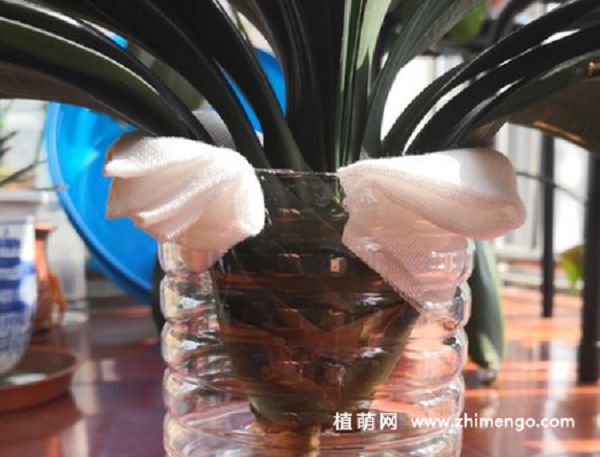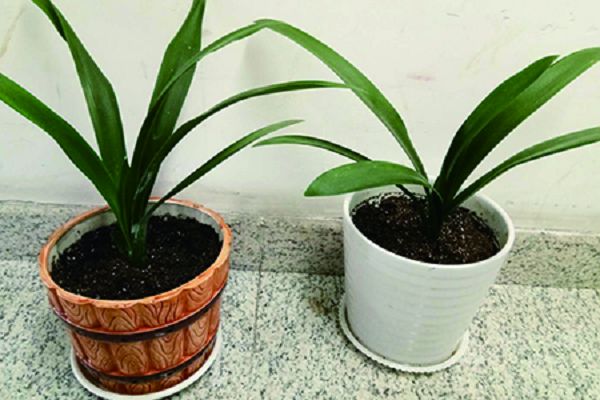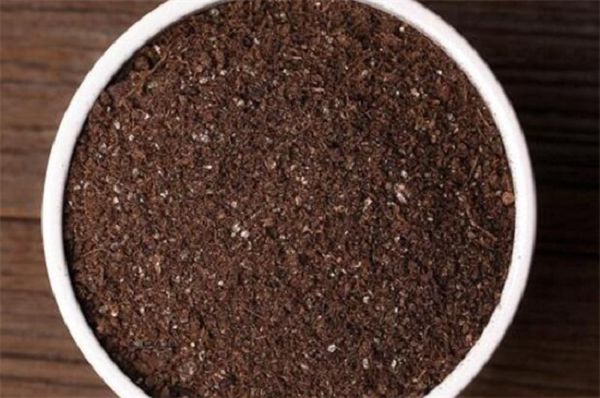How to save the rotten root of a gentleman orchid? if the rotten root is cut off, it can also take root by hydroponic culture.

With the weather getting hotter day by day, bitter flower lovers, summer for succulent, flower potted plants is a difficult season, a little attention, there will be rotting roots. There is a flower friend raised a pot of gentleman orchids, do not know what happened, appeared the phenomenon of rotten roots.
There is no way, since the rotten roots have to be dealt with, worried that the soil culture will rot, so try to use water culture, did not expect that water culture rooting is quite fast. Let's share the whole process.
How to save the rotten roots of Gentleman 1. Preparation work
Now that the roots are rotten, we should first prepare materials for rotting roots, such as beauty knives, carbendazim, clear water, washing pots, hydroponic containers and other materials.
2. Plant depotting
Before cleaning the rotten roots, the first step is to remove the plant from the pot, that is, to dig out the rotten roots of Phalaenopsis from the pot soil. Generally, first pat around the flowerpot, and the bottom of the pot, so that the soil is loose and easy to take off the pot.
Then dig up the topsoil, do not hurt the plant, dig half of the pot, you can hold the plant in one hand, and then gently push the pot back, so that the plant can be easily removed.
3. Cleaning and pruning of rotten roots
After the gentleman orchid takes off the basin, first clean up the soil of the root, rinse the root with clean water at the same time, and remove the rotten root one by one with the disinfection art knife, do not be reluctant to give up in the process of cutting, be cruel, cut off the rotten root at once, if the rotten root is not cut clean, there will be secondary decay.
4. Disinfection
After cutting off the rotten roots of the orchid, connect some water in a basin, add a few drops of carbendazim, stir well, soak the rotten roots in the solution for 10 minutes, then remove them and put them in a cool place to drain.
5. Prepare a hydroponic container
At that time, I was in a hurry. The hydroponic container used a mineral water bottle, but the mineral water bottle was cut from the middle, just enough for this gentleman orchid. However, it is suggested that flower friends with conditions can use a transparent glass container, the mouth of the container is not too small, the mouth is a little bigger, can accommodate the gentleman orchid plant.
6. Hydroponics process
The hydroponic container is ready, add the clear water to the container, and add half of the water. Then take the orchid and put it in the container to let the root of the orchid touch the water surface slightly. In order to facilitate the later adjustment of the root contact with the water surface, it is suggested to make a grid barrier layer to facilitate the control of the root contact with the water surface.
It is important to know that the root can not be inserted directly into the water, otherwise it will rot. Here only a few pieces of cloth are added to the edge of the mineral water bottle to avoid damaging the plant and at the same time control the contact between the root and the water surface.
After hydroponic culture, you can put the hydroponic container in a cool and ventilated place, the environment must be ventilated, and then wait patiently for it to take root. Generally, you will see tender white roots emerge in 2-3 weeks.
The above is the whole process of the rotten roots of Cymbidium, from de-potting, cleaning, pruning, and then to hydroponics. I hope this process will be helpful to flower friends.
Of course, in the process of raising magnolia, try to avoid decay, the following points should be grasped.
How to avoid rotting roots 1. The environment is not suitable.
If the environment has high temperature, high humidity and poor ventilation, it is very easy to cause the succulent root of Cymbidium to rot, especially in summer, not only the temperature is high, but also muggy.
So keep the environment ventilated as smoothly as possible in summer and use fans to enhance ventilation if necessary.
2. Overwatering
If there is nothing to water the orchid, when the water content of the basin soil is too large and the drainage is not timely, the fleshy root of the orchid will be soaked for a long time, which will also lead to discoloration and decay of the root. Therefore, daily maintenance should control watering, watering according to the dry situation.
3. Flowerpot selection
The poor air permeability of flowerpots will also lead to rotten roots of orchids. When raising orchids, avoid using pottery pots and plastic pots, try to use pottery pots and mud pots, and put some particles at the bottom of flowerpots to facilitate air and water permeability.
Related
- Is the orchid suitable for indoor use? Is it good for the body?
- How to prevent the empty root of orchids?
- What to do after the crab claw orchid is withered?
- Why are the leaves of orchids always yellow? Fertilizing and watering.
- Can the root of the gentleman orchid be saved if it is rotten?
- Diagnosis and treatment of cotton-blowing beetle insects in Cymbidium
- There is a way for a gentleman's orchid to rot.
- What is the most suitable temperature and humidity for the orchid?
- How to raise a gentleman's orchid? Cultivation techniques of Cymbidium
- How to prepare the nutritive soil for the cultivation of Cymbidium



